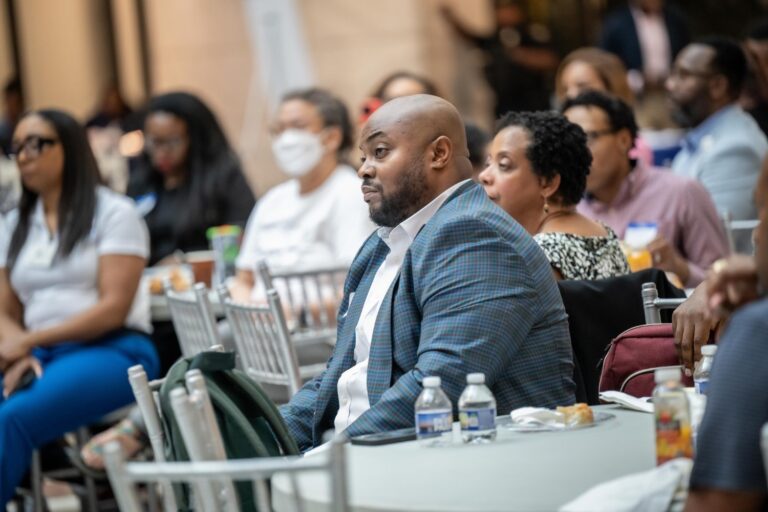US mental health shows little improvement since depth of pandemic anxiety, isolation and depression
CHICAGO–LifeWorks, a leading provider of digital and in-person total well-being solutions, supported by TELUS Health, today released its monthly Mental Health Index™ revealing minimal improvement since the depth of pandemic anxiety, isolation and depression, with almost half of American workers saying they would be interested in a confidential assessment of their mental health.
Among people who expressed interest, the preferred mode of assessment was mixed: 40 percent wanting to connect online, 36 percent preferring an in-person assessment, 6 percent choosing the phone and 18 percent without a preference.
- The U.S. Mental Health Index™ score for December 2022 is 69.5 points out of 100, a modest recovery from the last two months of declines, and just three points higher than the pandemic-low score in April 2020.
- According to the Index, 25 percent of Americans have a high risk of developing a mental illness. This minor improvement over 27 percent in April 2020 is negligible compared to the much lower 14 percent of Americans with high-risk during the three years prior to 2020. Young adults, women and people with financial concerns are most at risk.
Out of the factors challenging mental health, anxiety was consistently ranked with the worst mental health sub-score for the past year. Approximately 30 percent of people currently in the high-risk group reported diagnosed anxiety or depression.
Finances represent the leading concerns and barriers to mental health
Despite a national increase in average wages, inflation is the greatest concern for more than one-third (36 percent) of working Americans followed by recession (13 percent). Americans with a household income below $100,000 are 80 percent more likely to lack confidence in their problem-solving abilities under pressure and to be concerned about their mental health and wellbeing. People who lack confidence under pressure have a mental health score nearly 16 points below the national average.
Notably, as women generally earn less than men, they are 60 percent more likely than men to lack confidence in their problem-solving abilities under pressure, and have consistently and significantly lower mental health scores. The current mental health score of women is 66.8 compared to 72.6 for men. In addition, workers who lack emergency savings have a mental health score nearly 18 points below the national average.
Holiday stress is also associated with finances. Among Americans reporting increased holiday- season stress, 34 percent were concerned about being able to afford the gifts they wanted to give. The mental health score of this group is more than 22 points below the national average and, another 7 points lower (hitting 40.7) for people who said it was the main reason they would not be participating in holiday gatherings.
People under 40 find it harder to cope
Mental health scores of American workers improve consistently by age group, with older workers fairing the best. People under 40 are three times more likely than people over 50 to say their biggest concern is their mental health and well-being. They are twice as likely to lack confidence in their ability to cope with stressors at work and in their personal lives. Workers under 40 are also twice as likely to struggle when adapting to change, a characteristic that aligns with a mental health score 14 points below the national average.
Comments from TELUS Health Chief Operating Officer, Michael Dingle
“Over the last three years, American workers have faced increasing financial uncertainty. At the same time, young and emerging professionals have only known transitional and ever-changing workplace environments. The reality is that all change is stressful if not managed well with techniques to mitigate anxiety. As employers take a more proactive role in supporting the health and well-being of their employees, organizations and leaders need to be supported in building more resilient cultures by equipping their teams with coping skills that can be taught, modelled and reinforced. There is clearly a need for this support as employees continue to deal with change and financial stresses.”
Comments from LifeWorks Global Leader and Senior Vice President, Research and Total Well-being, Paula Allen
“The data showing that half of Americans are interested in having a mental health assessment is a call to action and is another sign that the need is significant. There is an intuitive understanding of the potential need for help as the group wanting an assessment has much lower mental health score than those who do not want an assessment, but most people will not have this need met. We need to leverage the opportunity to expand the reach of mental health professionals with the smart use of technology so there is no gap between people wanting an assessment and getting it in a timely manner. While in-person support will always have value, there is a growing preference among the population to use technology to start their personal mental health journey.“
The full United States LifeWorks Mental Health Index™ report can be found here. This month, the report also includes insights on whether healthcare professionals treat patients differently because of race, ethnicity, gender, or weight.
LifeWorks is a wholly owned subsidiary of TELUS now operating as part of TELUS Health as a result of its recent acquisition.
About the Mental Health Index™
The monthly survey by LifeWorks was conducted online from November 11 to 18, 2022 among 5,000 respondents in the United States and who were employed within the prior six months. Participants are selected and data statistically weighted to be representative of the age, gender, industry, and geographic distribution in the United States. The Mental Health Index™ is published monthly, beginning April 2020. Benchmark data was collected in 2017, 2018, 2019.
The Mental Health Index™ is based on a response scoring system that then turns individual responses into point values. Higher point values are associated with better mental health and less mental health risk. Scores between 0 to 49 correspond with distress levels, scores between 50 to 79 correspond with strain levels and scores between 80 to 100 correspond with optimal levels of mental health.
About TELUS Health
TELUS Health is a global healthcare company serving people in more than 160 countries delivering both digital innovation and clinical services to improve total physical, mental and financial health and wellness across the full spectrum of primary and preventative care. By leveraging the power of technology to deliver connected solutions and services both in-person and virtually, TELUS Health is improving access to care and revolutionizing the flow of information while facilitating collaboration, efficiency, and productivity for physicians, pharmacists, health authorities, allied healthcare professionals, insurers, employers and people globally, progressing its vision of transforming healthcare and empowering people to live healthier lives.
Our clinical team is composed of renowned and passionate health professionals around the world delivering best-in-class people-centric care to hundreds of thousands of employers, professionals and their families.
For more information, please visit: www.telushealth.com.
ID-US, ID-CORP, ID-MH







